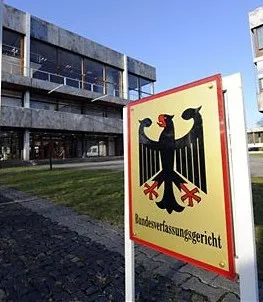New draft bill presented in Germany for ratification of the UPCA
June 12, 2020
The German government has been acting fast since the Federal Constitutional Court declared void the German ratification of the Unified Patent Court Agreement in March. It submitted a new draft bill to ratify the UPCA last week, which was sent for consultation to associations and other institutions. Their deadline for filing opinions is three weeks.

But less than a week after the FCC decision, the German minister of Justice and Consumer Protection, Christine Lambrecht, issued a press release of 26 March 2020, stating: “I will continue to work to ensure that we can provide the European innovative industry with a Unitary Patent and a Unified Patent Court. The Federal Government will carefully evaluate the decision of the Federal Constitutional Court and examine ways to remedy the formal deficits the FCC found during this legislative period.”
Since then, apparently work has been done. Taking into account the short consultation period, it now seems possible re-ratification of the UPCA in both chambers of parliament could be completed this year.
In the text accompanying the new draft proposal, the German Ministry of Justice and Consumer Protection explains that the FCC declared void the UPCA only on a formal ground: it wasn’t approved by a two-thirds majority. The Ministry reasons that this is the only problem to be solved, as three substantive points of the constitutional complaint were held inadmissible: ratification must be done with the required two-third majority.
The fact that the UPCA will have to be amended due to the UK's exit from the UP project – London is mentioned as the venue for one of the court’s branches of the central division, for instance – is apparently not seen as a problem. Winfried Tilmann, consultant at Hogan Lovells and one of the court’s founders, told JUVE Patent this can be discussed once Germany has ratified the UPCA: “It would be better, once the provisional application phase is under way in accordance with the protocol, to determine in the competent administrative committee the inevitable legal consequence of the loss of London, namely that the tasks of London will be provisionally performed by the remaining central divisions.”
Despite the German diligence, several problems are looming however. New constitutional complaints, to begin with. Immediately after the FCC had declared the German ratification procedure void, Ingve Stjerna told JUVE Patent: “The court did not even rule on the substantive complaints and even hinted at further constitutional deficits of the agreement. (…) If, despite these problems, the German government continues to adhere to the Convention [the UPCA, ed.], a new constitutional review by the Constitutional Court will have to be considered, possibly of a complaint from a company.”
President Benjamin Henrion of the Foundation for a Free Information Infrastructure, also announced his organisation “will go fundraising to file a second constitutional complaint in Germany against EU-wide software patents via the backdoor of the Unitary Patent Court.”
As reported here, a possible ground for a challenge is that the UPCA’s provisions that establish the primacy of EU law violate the German constitution. Complaints before the FCC, if materialized, could lead to further delays for the Unitary Patent system, although it isn’t sure the constitutional court will ask parliament or the German president to suspend activities concerning the UPCA pending a decision, as happened in 2017.
In the meantime, Alan Johnson, former partner of Bristows, raised an interesting question on Twitter: “So Germany is to ratify a treaty still naming London as the seat of the pharma CD! If this goes through and with the UK not yet having withdrawn its instrument of ratification (even if this is legally possible) does the UK automatically become a participant country?”
Precisely because of this issue, Patrick Breyer, representative of the Pirate Party in European Parliament, has asked the European Commission to confirm that Germany no longer has the right to ratify the UPCA, as according to EU case law, Member States must not enter into agreements with third countries that affect EU rules or alter their scope.
You may also like















Kay
What a mess my home country is creating. Has anybody responsible even read the complaint and the decision by the FCC? Likely they only listened to consultants. And since the budget for consultants has become problematic due to the example of Ms. von der Leyen, these consultants are then payed by interested external companies, who have an interest in a certain outcome. Lobbyism has become so easy in Germany.
Attentive Observer
In general lobbyists are rather discrete. At least in the German Ministry of Justice, we now have a name. When less than a week after the decision of the GFCC was disclosed, the minister in charge of the UPC published the famous communiqué that Germany was pursuing the ratification of the UPC, it was clear that it was not the minister herself who had this idea. The communiqué was manifestly prepared by some members of her ministry, acting for some lobbyists. Mr Stjerna has clearly shown in various publications that the Ministry of Justice was filled with proponents of the UPC which tried to hide some negative aspects of the UPC for Europe and especially European SMEs, so that the Parliament would ratify without batting an eyelid. The problem is that the ratification was declared void by the GFCC. It was interesting to read an article of Mr Tilmann published in GRUR 2020, 441. In this article, VI, 2.b) Mr Tilmann explained that the UPC could enter into force and that the London Section of the Central Division would simply be given at least provisionally to Paris, and the life science section could be later located in a different place. This could be done on the occasion of a a further amendment needing a subsequent ratification. The problem is that Mr Tilmann has not given the faintest legal basis for such an interpretation of the UPC, not even via the Vienna Convention on the Law of Treaties (VCLT). What is interesting is that the same statement is to be found in the explanatory note of the Ministry of Justice, relating to the new ratification act to be presented to the Parliament, see Point B. third to sixth §. We can thus suspect that Mr Tilmann had a direct influence in this respect. At least the draft proposal from the Ministry of Justice mentions that a political declaration of the remaining member states under Art 33(3) VCLT would be necessary. It appears naïve to bank on such a declaration from the remaining member states, which would have for effect, according to Mr Tilmann and the civil servants in the ministry, to at least provisionally, give the life science section to Paris. This seems wishful thing at its best. Nevertheless it is abundantly clear that Mr Tilmann, if he is not the co-author of the explanatory note, he has at least strongly inspired it. In his Article in GRUR, Mr Tilmann mentioned Art 25(2) VCLT, according to which, “the provisional application of a treaty or a part of a treaty with respect to a State shall be terminated if that State notifies the other States between which the treaty is being applied provisionally of its intention not to become a party to the treaty”. For Mr Tilmann it is enough for the UK to notify its withdrawal from the UPCA under Art 25(2) VCLT for it lose its status as "Member State" of the UPCA and then Italy takes over the position of the UK as far as ratification is concerned. It should also not be forgotten, that the UK has up to now simply declared that it does not wish to apply the UPCA, but has not officially declared its withdrawal from the agreement. In an earlier comment, I have explained that eventually this would allow the UK to blow up the UPC. I will not repeat it here. If Italy takes over UK’s position as far as the entry into force is concerned, I fail to see the logic behind denying Italy to take over the position of the life science section of the Central Division. The question raised by Mr Johnson in the present blog, as well as the question of Mr Patrick Breyer to the Commission requires a reply by the German authorities, whatever they might think or say. http://patentblog.kluweriplaw.com/2020/06/02/upca-should-be-abandoned-and-substantive-reform-at-eu-level-taken-up/?doing_wp_cron=1592029445.6969950199127197265625 What is also surprising is that the new draft proposal does not say a single word about the constitutional questions raised in § 166 ff. of the decision of the GFCC about the primacy of EU law over the German Constitution. I refer here to the blog of Mr Klopschinski. http://patentblog.kluweriplaw.com/2020/05/18/primacy-of-eu-law-over-national-law-german-federal-constitutional-court-judge-comments-on-unified-patent-court-decision/?doing_wp_cron=1592029452.2258329391479492187500 In its article in GRUR, Mr Tilmann considered that the FGCC should have replied to the question it has itself raised, but at the same time he does not see a threat for a renewed ratification in this respect, see Vi, 3, b). We have here a further reason to believe that Mr Tilmann has guided the hand of the drafter of the explanation note of the new ratification proposal. My grand-father used to say: if you bury your head in the sand, do not wonder if your bottom gets smacked. This is what might happen to Mr Tilmann and his aides, not only in the German Ministry of Justice, but also in France. A very renowned litigation lawyer even went so far as to consider the transfer to Paris of the life science section of the Central Division was a gift from Brexit, but it would be wise to keep quiet about it. I think at least this hope must have vanished by now. Nothing against European Integration, but not the type of integration some lawyers want to push down our throats at any rate. They want a return on their investment, but this is not a reason good enough to clamber us with such a badly drafted agreement. Techrights and zoobab: FINGERS OFF!!!